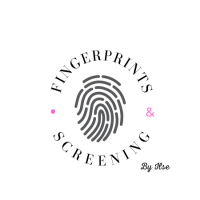How to apply for a South African liquor license
If you intend to start a business selling alcoholic beverages in South Africa, chances are you'll need to apply for a liquor license. Obtaining this permit involves a structured process that requires compliance with specific rules and regulations. Fortunately, the National Liquor Authority (NLA) of South Africa provides comprehensive information necessary for applying for a liquor license, available on their website.
Below are the steps you need to follow and the documents required to successfully navigate this process:
Step 1: Determine the type of liquor license you need
Before you begin, it's essential to know which type of liquor license you require. In South Africa, there are various licenses for retail sales, wholesale sales, manufacturers and micro-manufacturers, importers, exporters, and more. Make sure you apply for the appropriate license that aligns with your business activities.
Step 2: Gather the required documents
To apply for a liquor license, you'll need to submit several documents, including:
- A business zoning certificate for industrial purposes or a letter of consent from the relevant municipality.
- A comprehensive written statement supporting the application.
- Any determination, consent, approval, or authority required by law.
- Valid proof that the prescribed application fees have been deposited into the dti's bank account.
- A valid certified copy of the applicant's ID or passport.
- A trading license if the applicant is a foreigner.
- An SAPS police clearance certificate not older than three months from the date of issue.
- If the applicant is a juristic person, valid copies of registrations issued by the Companies and Intellectual Property
- Commission (CIPC) or other relevant registration authority showing the financial interests of all members, shareholders, partners, or beneficiaries, as applicable.
- A valid tax clearance certificate if the applicant is a juristic person, issued by the South African Revenue Services (SARS) within 12 months from the date of application.
- A verification certificate issued under the B-BBEE Act.
Step 3: Submit your application
Once you've gathered and prepared all the documents, submit your application to the NLA. If you're a new customer applying for the first time, you need to register via the following link: https://thenla.thedti.gov.za.
If you're already known to the NLA, you can also submit your application by delivering it in person, emailing it, or sending it by post.
Step 4: Pay the license application fees
When submitting your application, you'll also need to pay the application fees. The exact costs vary depending on the type of license you're applying for and can be found on the NLA's website.
Step 5: Await review and approval
After submitting your application, the NLA will review your documentation and make a decision on your application. This process may take some time, so please be patient.
Step 6: Receive your Liquor License
If your application is approved, you'll receive a liquor license from the NLA. Ensure you keep the license in a safe place and adhere to all associated terms and regulations.
Obtaining a liquor license in South Africa can be a challenging process, but with proper preparation and compliance with NLA regulations, you can successfully navigate it and start your business with the necessary permits and approvals. Good luck!
Fingerprinting:
Have you submitted a liquor license application in South Africa and need fingerprints for your SAPS Police Clearance Certificate application? You can visit us (Fingerprints & Screening) to have your fingerprints taken for this statement.
